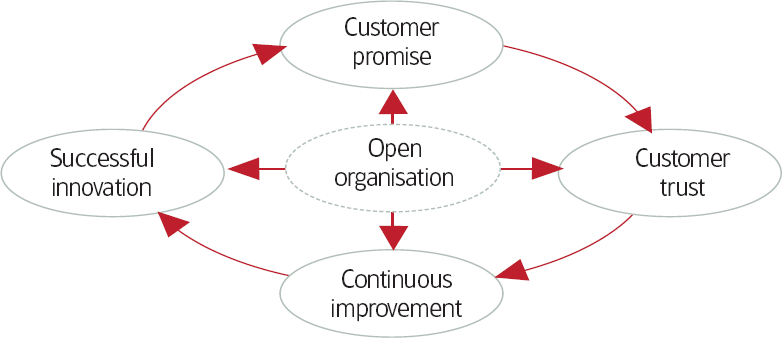As a rule, one of marketers' biggest concerns is keeping up with the new and the next. So it's no surprise that innovation is a major theme of Measuring Advertising Performance (MAP), a two-day Warc event that takes place in London on March 12th-13th. There will be many theories of innovation presented by conference speakers – and one of the most interesting is from Patrick Barwise, Emeritus Professor of Management and Marketing at London Business School.
As he told me when we talked over his ideas yesterday, Barwise sees innovation as a crucial component of long-term business success. But such innovation is incremental and complementary – not revolutionary, category-creating and, as so many have it, "disruptive". What's more, brands are built over the long term not by seismic shifts, but by everyday business processes that marketers might simply see as "beneath their dignity".
As Barwise puts it in his book, Beyond the Familiar, and this 2012 Market Leader article, both co-authored with Seán Meehan, looking for "blue oceans" may be too simplistic a strategy. Instead, according to Barwise and Meehan's framework for success, companies should focus on the basics: building customer trust, offering a clear customer promise, improving that promise and achieving further growth via incremental – rather than revolutionary – product and service innovation. It's all about "an awful lot of boring grunt-work, that doesn't hit the newspapers – just to make sure the products are simply better than the competition," Barwise said. "It's not all breakthroughs. It's not about creating the category – it's about getting it right."
An example of this framework in action is Apple. Far from being the revolutionary category creator of legend, Barwise pointed out that Microsoft sold tablets and firms from Compaq to Audible launched portable mp3 players long before the iPad and iPod hit the big time. Instead, what Apple got right was a great brand promise to launch with – and then regularly releasing ever-better versions. As Steve Jobs was fond of saying – "it just works". In a completely different industry, Procter & Gamble should be praised, Barwise said, for "taking the long term view": achieving continuous growth through little-and-often product improvements.
There are obvious implications for market researchers. Not for Barwise are the eye-catching ethnographic study or neuroscience project. Instead, simple customer contact, in-home testing, digital surveys and select effectiveness metrics with proven value, such as the Net Promoter Score, should all be part of the brand owner's repertoire.
Of course, this is not the only view of innovation that's out there. Others would argue that category creation should be a major aim for brand owners – and it's likely that "disruptive" will be one of the most-used words at MAP.
You can browse the event's full agenda, and find out how to book, in the Warc Store. We've confirmed speakers from clients including Jaguar and Mondelez International, agencies from MediaCom to DDB, and research practitioners from GFK, Thinkbox and Google. We hope to see you there.


